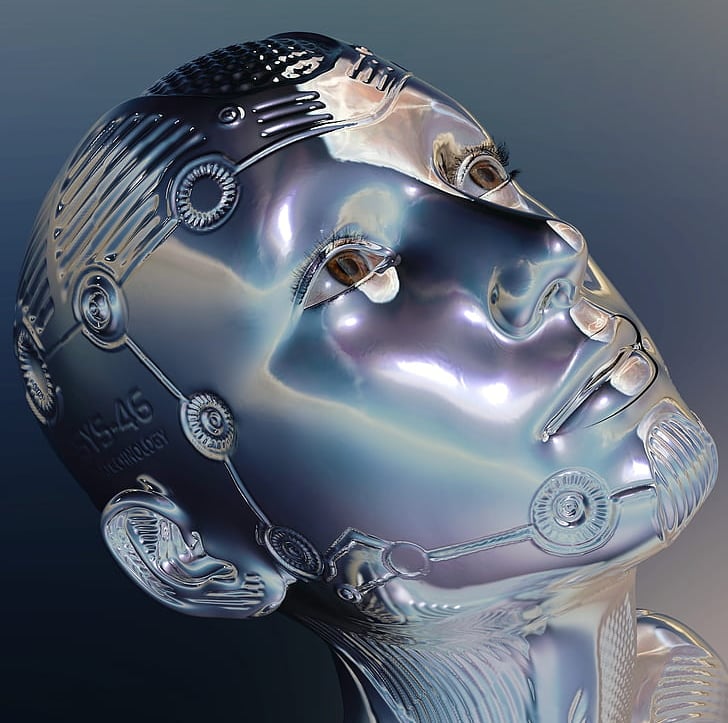Embracing Artificial Intelligence: Technology is Transforming the Lives of Seniors
Uses of AI for Seniors
INFORMATIONAL


Disclosure:
This article contains affiliate links. If you click on these links and make a purchase, I may receive a small commission at no additional cost to you. This helps support my website and allows me to continue providing valuable content.
AI: A Silver Lining for Seniors
Artificial intelligence (AI) is rapidly transforming our world, impacting all demographics, including senior citizens. While some may view AI with apprehension, this technology has the potential to revolutionize how we age, promoting independence, well-being, and a better quality of life.
AI's Current Impact on Seniors
Independent Living: AI-powered smart home assistants, such as the Amazon Echo and Google Nest Hub, can manage tasks like adjusting thermostats, controlling lights, and reminding seniors to take medication. This technology helps seniors maintain their independence in their own homes for longer periods.
Health and Wellness: Wearable health trackers with AI capabilities, like Fitbit and Apple Watch, monitor vital signs, detect falls, and predict potential health issues. This real-time data helps seniors, and their healthcare providers proactively manage health.
Social Connection: AI-powered chatbots, such as Replika, offer companionship and emotional support, combating social isolation, a common concern among seniors. These chatbots engage in conversations on a variety of topics, providing a sense of connection and support.
Cognitive Support: AI-driven games and exercises, available on platforms like Lumosity and CogniFit, stimulate cognitive function and can potentially delay cognitive decline. These activities are tailored to individual needs and abilities, making them both challenging and enjoyable.
Looking Ahead: The Future of AI and Senior Care
Robot Companions: Advanced robots with AI capabilities, such as those developed by companies like Intuition Robotics, could provide physical assistance with daily tasks, medication reminders, and emotional support. These robots offer a wider range of activities compared to current smart home assistants.
Personalized Healthcare: AI can analyze vast amounts of medical data to personalize treatment plans, predict health risks, and facilitate early detection of diseases. This could lead to more effective treatment and prevention of chronic conditions in seniors.
Proactive Care Management: AI systems could monitor health data and living patterns, identifying potential issues and alerting caregivers or healthcare providers. This proactive approach to care can help prevent serious health problems and improve overall well-being.
Enhanced Accessibility: AI-powered interfaces, such as those in devices like the OrCam MyEye, adapt to individual needs, allowing seniors with visual or hearing impairments to interact more easily with technology. Features like text-to-speech conversion, voice commands, and magnification tools significantly enhance accessibility.
Challenges and Considerations
Despite its promise, some challenges must be addressed to ensure AI's beneficial impact on seniors:
Digital Literacy Gap: Many seniors may require training and support to feel comfortable using AI technologies. Initiatives like Senior Planet and the AARP's tech training programs can help bridge this gap, ensuring seniors benefit from AI.
Privacy Concerns: Ensuring data security and privacy is paramount when dealing with sensitive health information. Robust security measures must be in place to protect seniors' data and ensure their privacy.
Affordability: Making AI technologies accessible to all seniors, regardless of socioeconomic background, is crucial. Subsidy programs and initiatives can help make AI-powered senior care affordable for everyone.
Conclusion
AI is not a replacement for human connection and care, but it can be a powerful tool for empowering seniors to live more independent, healthy, and fulfilling lives. As AI continues to evolve, so will the ways it supports our aging population. By embracing this technology thoughtfully and addressing its challenges, we can create a future where seniors can age well and continue to thrive.
References
American Economic Review: Insights on Age and High-Growth Entrepreneurship
Guidant Financial 2022 Small Business Trends Survey
Google Nest Hub
Replika
Lumosity
CogniFit
Intuition Robotics
OrCam MyEye
Senior Planet
AARP Tech Training
Privacy Concerns in AI
Affordability of AI for Seniors


